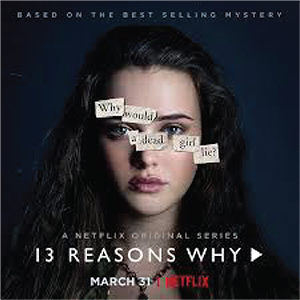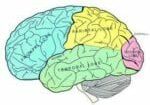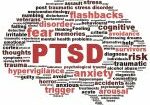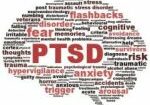For the past two weeks I’ve had an internal debate about whether or not to watch the Netflix series, 13 Reasons Why. Normally I wouldn’t share my TV indulgences in a blog post because, well, who cares? However, this is different. If you have a tween or teen in your life, this matters.

Pop culture geeks and parents of adolescents probably already know about this show. It’s based on a 2007 book and follows the story of Hannah, a high school student who commits suicide. Each of the thirteen episodes details a different contributing factor to Hannah’s suicide and the reactions of those she holds responsible for her decision. The story unfolds through a series of flashbacks of disturbing events from Hannah’s life involving those individuals, and a set of recorded diary entries made by Hannah before her death. Sounds pretty uplifting so far, right? Can’t wait to see it.
If we lived in an ideal world we wouldn’t need cautionary tales about teen suicide and the impact of bullying. And I would be out of a job.
In an ideal world the story would simply inspire teens to take more responsibility for their interactions with peers, look out for one another, and seek help when depressed. That’s in an ideal world. If we lived in an ideal world we wouldn’t need cautionary tales about teen suicide and the impact of bullying. And I would be out of a job. You may have noticed, we do not live in an idea world. We live in a world where one misstep becomes enshrined forever in social media and rumors spread through a high school faster than you can say “snapchat.” For the umpteenth million time I will say “thank heavens the Interwebz didn’t exist when I was a teen!”
If you’ve ever been a teen, seen a teen, heard a teen, or known a teen you may have noticed that teens differ greatly from other human beings. It isn’t just the hormones and mood swings. Not that those aren’t enough fun on their own, but there’s more. Teen brains are still developing. For those of us fluent in Psychobabble we say that the teen brain is not fully myelinated. In fact, our current understanding is that the human brain isn’t fully developed, or myelinated, until about age 26. Skipping over the neurobiology lesson I’ll just say that the myelination process, among other things, allows our frontal lobe to communicate with the rest of the brain. Without full myelination the frontal lobe doesn’t work well. Know what the frontal lobe does? It helps us make decisions, solve problems, and connect cause and effect. Know where adolescents seriously flounder? You guessed it: decision making, problem solving, and connecting cause and effect.
What does this have to do with a dumb show on Netflix? It’s about teen suicide. It’s not only about suicide, it glamorizes teen suicide. Hannah is depressed and vulnerable. She feels like her life sucks. This feels permanent to her. Because she has limited problem solving skills and minimal executive function she decides to kill herself. It seemed like a good idea at the time, but it’s permanent. Permanence doesn’t thoroughly resonate with adolescents. So now Hannah is dead and suddenly, she’s the It Girl. She’s managed to gain the attention of her crush, get recognition from peers at school, exact revenge in the form of a lifetime of guilt for those who wronged her, and… wait for it… get her own TV show! What started out as a cautionary tale became as romantic as Romeo and Juliet, and we know how that ends. Imagine the depressed, vulnerable teen watching this show. All her problems solved in one fell swoop. It seemed like a good idea at the time, but it’s permanent.
If they had read it they would know that the answer to that eternal parental question, “if so-and-so jumped off a bridge, would you?” is actually, among some teens, “well, maybe.”
The good folks at Netflix seem to have missed the mountains of research about suicide, cutting, and other risk-taking behavior among teens. If they had read it they would know that the answer to that eternal parental question, “if so-and-so jumped off a bridge, would you?” is actually, among some teens, “well, maybe.” As strange as it may seem, teen suicide is contagious. Mental health professionals have known this for years. If you have a teen, I hope you’ll talk to him or her about this show. Even if your kid hasn’t seen it, I would bet good money that he or she has heard about it at school. Below are some links about the show, about what mental health professionals have said about it, and about how to talk to your adolescent about it.
http://www.npr.org/sections/ed/2017/05/05/526871398/facts-about-teens-suicide-and-13-reasons-why
https://www.vox.com/first-person/2017/5/8/15558014/13-reasons-why-bullying-suicide-therapy
http://abcnews.go.com/Entertainment/schools-warn-parents-netflixs-13-reasons/story?id=47006236





















